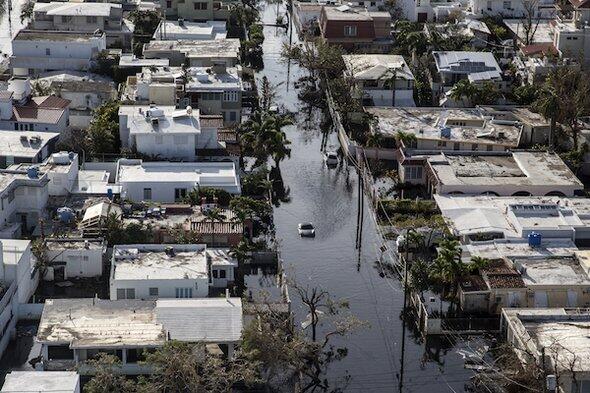Gun proponents say it’s inappropriate to talk about gun control after a mass shooting—that instead we should just mourn. Climate deniers say it’s inappropriate to talk about addressing climate change after a natural disaster (strengthened by our warmer planet)—instead we should just focus on recovery.
This is absurd. Without taking advantage such moments to design solutions, these deadly problems only get worse.
So after a hurricane, or as is the case in the Caribbean this year, after three major hurricanes, is it appropriate to talk about environmental conservation? In a word, yes. As we think toward the future, about where and how to rebuild, about how to adjust to this new climate normal—the increased likelihood and strength of storms and floods, the rising temperatures, the hastening of sea level rise—conservation needs to be a core part of the conversation.
Without protecting coastal mangroves and marshes and wetlands and coral reefs, there is nothing to buffer us from the impacts of storm waves and winds. Without robust local agriculture and healthy fish populations, people have a tenuous dependence on imports that may stop arriving. Without intact forests and grasslands—when we cover too much of the earth with concrete and asphalt—flooding and mudslides become more dangerous. Without clean waters, when the power goes out and we turn to rivers, they sicken us instead of hydrating us.
Conservation protects human health and well-being, and it makes good financial sense. As the saying goes, an ounce of prevention is worth a pound of cure. An intact coral reef can reduce wave energy by 97 percent, buffering the impact of storms. Mangroves can reduce wave height by 66 percent, protecting against erosion and flooding. Oyster reefs are as effective as man-made breakwaters and cost $85,000 less per hectare. We should work with nature—bolstering these natural protections—instead of against it.
Nature is ultimately what sustains us, and that becomes painfully clear when storms strip away all the layers we have built between ourselves and the environment. When we are cut off from food deliveries and running water, we turn to hunting and fishing and streams. These moments highlight the need to build resilience at a local level, to prevent what we can and prepare to protect and rescue ourselves and each other from what we can’t prevent. These moments highlight the need for self-sufficiency, for community-sufficiency—it’s become abundantly clear that we cannot depend on governments for rapid humanitarian response.
So, how can we re-localize? There are myriad ways of reducing our dependence on imported foods and imported fossil fuels. Permaculturegardens and fruit trees instead of lawns. Distributed solar, wind, and wave energy. Aquaculture of fish, shellfish, and algae. Filtering and storing water. Storing seeds. There is so much we can learn from how previous generations weathered seasons and crises. This may sound naïve—certainly these measures are only part of the solution; we also need better building codes, updated flood maps, improved containment of chemicals, and more—but conservation is a practical, effective, and necessary component.
Over and over again, we are seeing who bears the brunt when we don’t take care of coastal ecosystems, when we don’t build local resilience and self-sufficiency. The wealthy can jet away. Poor communities and communities of color get pummeled and stranded. From Barbuda*, to Saint Martin to Puerto Rico, to Houston, conservation and climate change are social justice issues. It’s heartbreaking and gut-wrenching to watch this history repeat itself.
To sustain ourselves, we must sustain nature. This is true every day, but in the wake of natural disasters it is laid bare. Fundamentally, we cannot innovate our way out of our dependence on nature. But we can both return to traditional ways of living with nature, and innovate our way into reducing our carbon footprints and into sustainable agriculture and aquaculture. And never was the need to do so more urgent.
Source: http://bit.ly/2yEImaN











